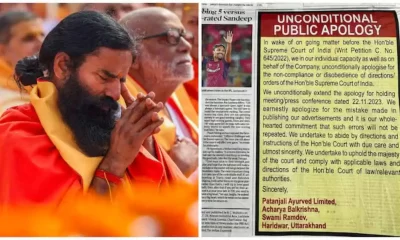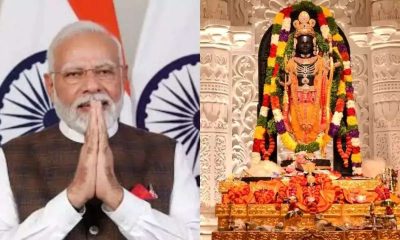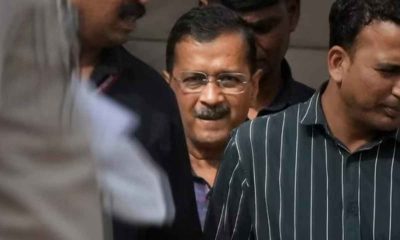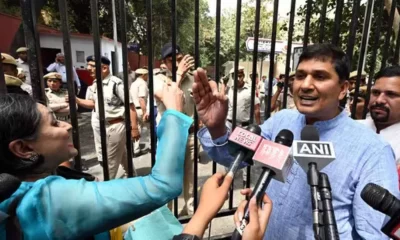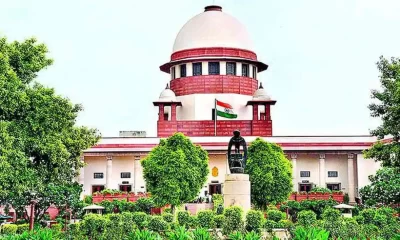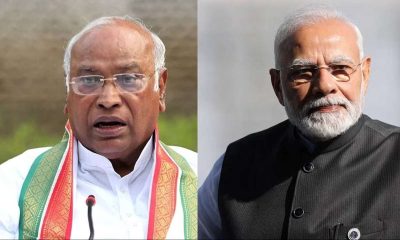India News
Supreme Court to fix Ayodhya case hearing date in Jan, BJP resents order
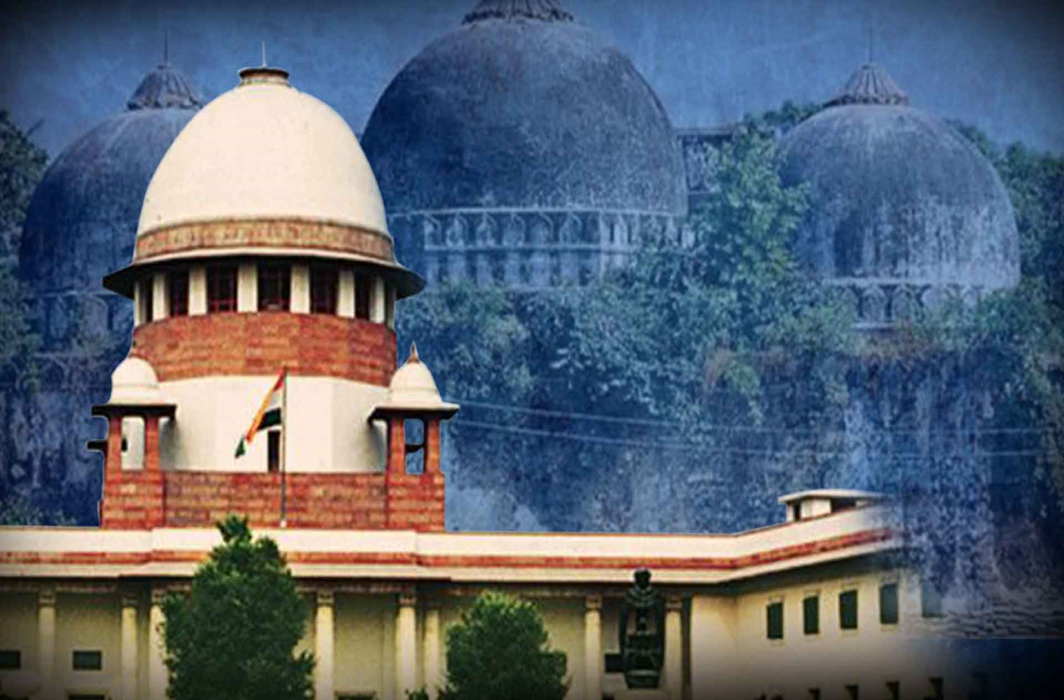
As the Supreme Court today (Monday, October 29) posted for January first week a decision on date for hearing the Ram Janmabhoomi-Babri Masjid title suit, leaders of BJP and other Sangh Parivar outfits voiced their resentment, some of them asking the Narendra Modi government to bring an Ordinance to facilitate construction of Ram temple at the disputed site in Ayodhya.
The court said that the issue will come up before appropriate bench in January. No decision was taken on Monday on the date of hearing and the composition of the bench.
The government refrained from coming out with a statement. Union Law Minister Ravi Shankar Prasad told a news channel that “a large number of people want the case to be decided soon”. However, he added, “We respect the Supreme Court decision. I have nothing more to say on this.”
Reacting to the rescheduled hearing, his colleague, Union minister Giriraj Singh remarked that “Hindus are running out of patience on the Ram temple issue.”
“The Congress has decided to make it a Hindu-Muslim issue. Shri Ram is the cornerstone of faith of the Hindus. Hindus are running out of patience. I fear what will happen if Hindus lose out of patience…,” he said.
Vinaya Katiyar, a Bajrang Dal leader and former BJP lawmaker closely associated with the temple movement, alleged “Congress pressure” behind the decision. Katiyar told News18, “It seems that everything is happening due to pressure by Congress and that these dates are because Kapil Sibal and Prashant Bhushan do not want it to be heard daily.”
The Supreme Court bench of Chief Justice Ranjan Gogoi and Justices SK Kaul and KM Joseph has directed to list the long-running Ram Janmbhoomi-Babri Masjid title suit in the first week of January for deciding the date of commencement of arguments in the matter.
“We have other priorities,” said Chief Justice Ranjan Gogoi, when the Uttar Pradesh government argued that it was a 100-year-old issue that should be taken up on priority by the government.
The chief justice also said that an “appropriate bench” would decide when to take up daily hearings, indicating that he may not even be one of the judges deciding on the decades-old dispute.
Last month, a top court bench headed by then Chief Justice Dipak Misra had cleared the decks for resumption of proceedings in the title suit, also called the Ayodhya matter, and posted it to be heard on October 29.
On September 27, the bench had in a majority opinion of 2:1 declined to review a 1994 ruling that the government can acquire land that a mosque is built on as a mosque is not integral to Islam. Many believed that decision meant the temple-mosque dispute can be taken up without any delay.
The majority opinion, authored by Justice Bhushan and supported by Justice Misra, had ordered the Ayodhya appeals “which are awaiting considerations by this Court for quite a long period, to be now listed in week commencing October 29, 2018 for hearing”.
Usually, this would entail the appeals returning to the Bench comprising Justices Bhushan, Nazeer and a new third judge, replacing Justice Misra, who retired on October 2.
However, the appeals which were posted on Monday before a Bench had neither Justice Bhushan nor Justice Nazeer.
The hearings had got deflected on the question of reference to a Constitution Bench.
Unhappy at the order, BJP leader and Deputy Chief Minister of Uttar Pradesh Keshav Prasad Maurya said, “I don’t want to comment since it’s the decision of Supreme Court. However, the adjournment of hearing doesn’t send a good message.”
Congress leader P Chidambaram accused the BJP of “polarising views” on Ayodhya issue before elections. “Congress party’s position is that the matter is before SC, everyone should wait until SC decides. I don’t think we should jump the gun,” he added. VHP working president Alok Kumar said the organisation will not wait “eternally” for the verdict and wants a law to build Ram Temple in Ayodhya
2024 Lok Sabha Elections
Bollywood actor Neha Sharma campaigns for her father Ajit Sharma in Bhagalpur, Bihar
The Bollywood actor posted a video on her Instagram handle which showed her journey through various districts of Bihar, including Kishanganj, Banka, Purnea and Katihar. She was dressed in a traditional salwar kameez and was seen greeting and encouraging the public to cast their votes.
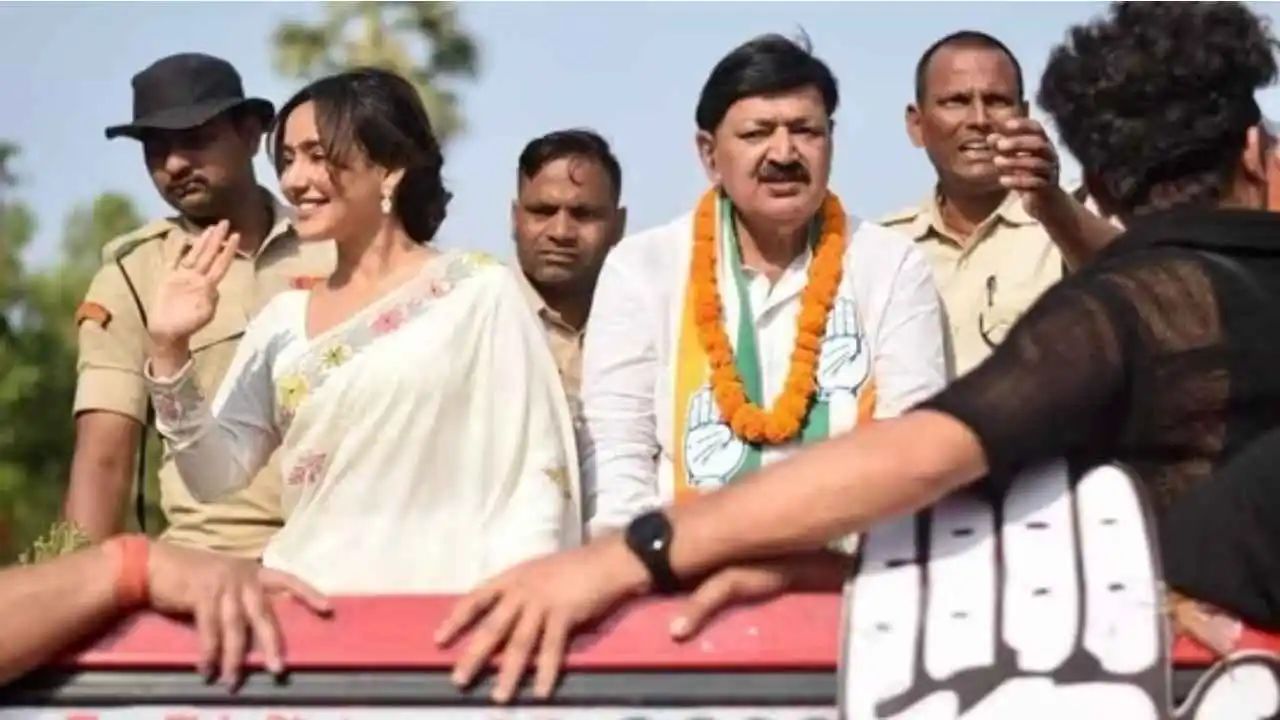
Bollywood actor Neha Sharma’s recent participation in a roadshow in Bihar has taken the internet by storm. Sharma, known for her roles in films like Tum Bin 2 and Crook, was seen supporting her father, Ajit Sharma, who is contesting from Bhagalpur Lok Sabha seat on a Congress ticket. The roadshow came amid speculations that the actor might enter politics. But, it is now clear that she was just campaigning for her father.
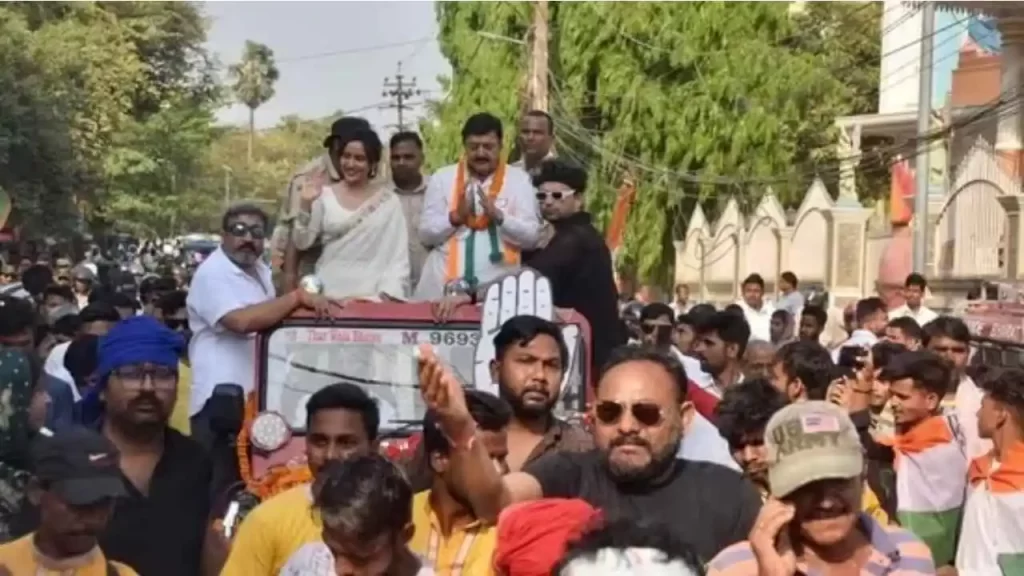
The Bollywood actor posted a video on her Instagram handle which showed her journey through various districts of Bihar, including Kishanganj, Banka, Purnea and Katihar. She was dressed in a traditional salwar kameez and was seen greeting and encouraging the public to cast their votes.
The actor received a warm reception and love from a large crowd in Pirpainti and Kahalgaon during her roadshow. She wrote on Instagram that it is said when someone gives one a place in their heart, then they live there forever. She said her heart is full of all the love and support she was receiving from the people. She thanked the people for the warm welcome she got in Pirpainti and Kahalgaon. Aapka pyar sar ankhon par.
Another video, circulating on social media showed the actor actively participating in her father’s election campaign in Bhagalpur. The election to the Bhagalpur Lok Sabha seat is set to take place in the 2nd phase on April 26. Ajit Sharma is representing the Congress and is up against JDU’s Ajay Kumar Mandal in this seat.
Earlier, there had been rumours and speculations that Neha Sharma might join politics. But many reports have clarified that she is not making her political debut yet. The Bollywood actor had been offered the opportunity to join politics by her father Ajjit Sharma but she is currently focusing on her acting career.
Education
Farmer’s son Nilkrishna Gajare Nirmalkumar from Maharashtra scores 100 NTA score in IIT-JEE Mains 2024
Nilkrishna Gajare’s father is a farmer and had to discontinue his own education after Class 12 as he faced financial difficulties. Gajare faced financial challenges growing up. However, his unwavering dedication and strategic approach to preparation set him apart from the crowd.
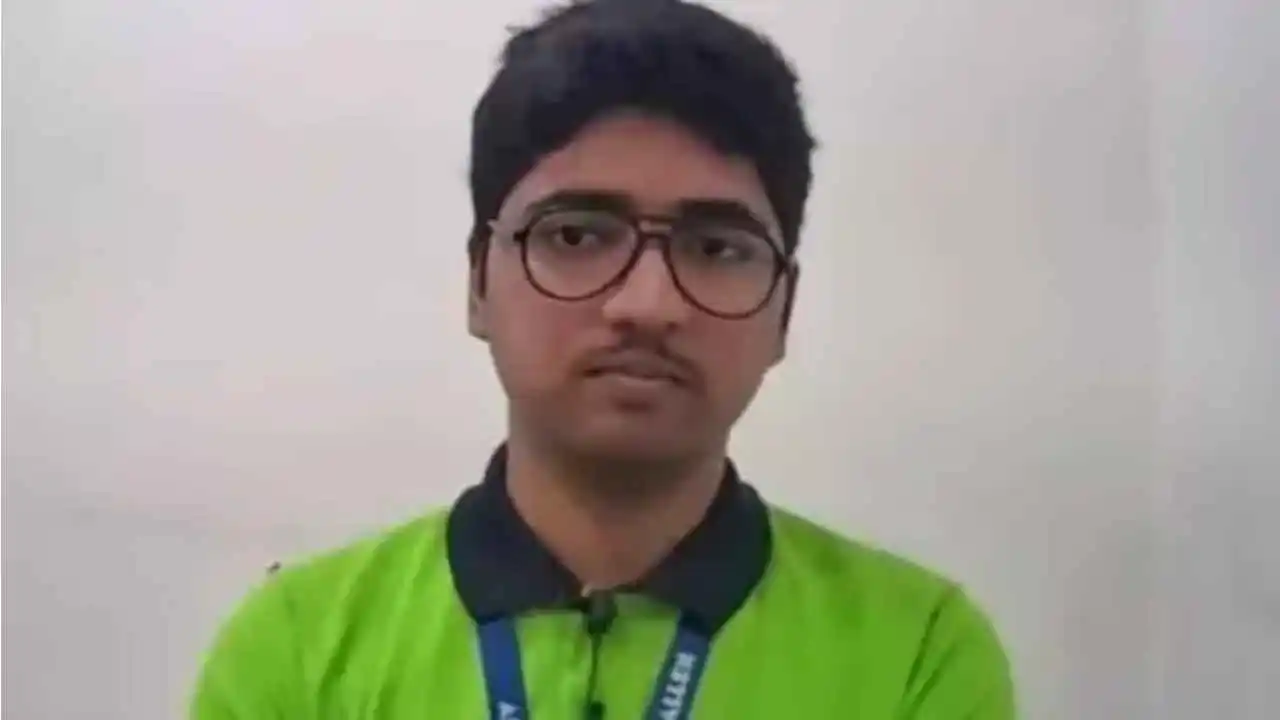
Nilkrishna Gajare, who hails from Maharashtra’s Washim, achieved an extraordinary feat by securing a perfect score of 100 in the JEE Main 2024 examination. His journey from humble beginnings to the pinnacle of success is a source of inspiration for many people.
Nilkrishna Gajare’s father is a farmer and had to discontinue his own education after Class 12 as he faced financial difficulties. Gajare faced financial challenges growing up. However, his unwavering dedication and strategic approach to preparation set him apart from the crowd, which resulted in his remarkable achievement of emerging as topper of one of India’s toughest Engineering entrance exams.
Nilkrishna Gajare had a strategic plan that helped him succeed in IIT-JEE 2024. According to Nilkrishna persistence is important and one should never stop trying until they understand a topic. He said being curious and asking questions are important traits of a good student. He said one should not be ashamed of asking questions.
Nilkrishna spent around 10-15 hours every day studying on his own for the JEE Main exam. He mentioned that he used his class notes for Physics and Physical Chemistry. For organic chemistry and inorganic chemistry, he relied on both notes and practice questions.
As for Mathematics, he believed that practicing regularly was the most important thing for him. Other interests of Nilkrishna include archery. He has participated at both state and national levels, and he finds joy in the sport. He said archery helps him understand the importance of focusing his attention on his goals. Nilkrishna likes watching movies and said they are a great source of enjoyment and relaxation.
He likes to watch a movie after exams and occasionally treats himself to one each week too. Gajare aims to keep up the pace for the JEE-Advanced exam and hopes to get into the IITs. He said he wants to secure admission in IIT-Bombay in the computer science branch.
2024 Lok Sabha Elections
Lok Sabha elections: Samajwadi Party chief Akhilesh Yadav files nomination from Kannauj
The Samajwadi Party has announced Akhilesh Yadav as its official candidate for the Kannauj Lok Sabha seat today
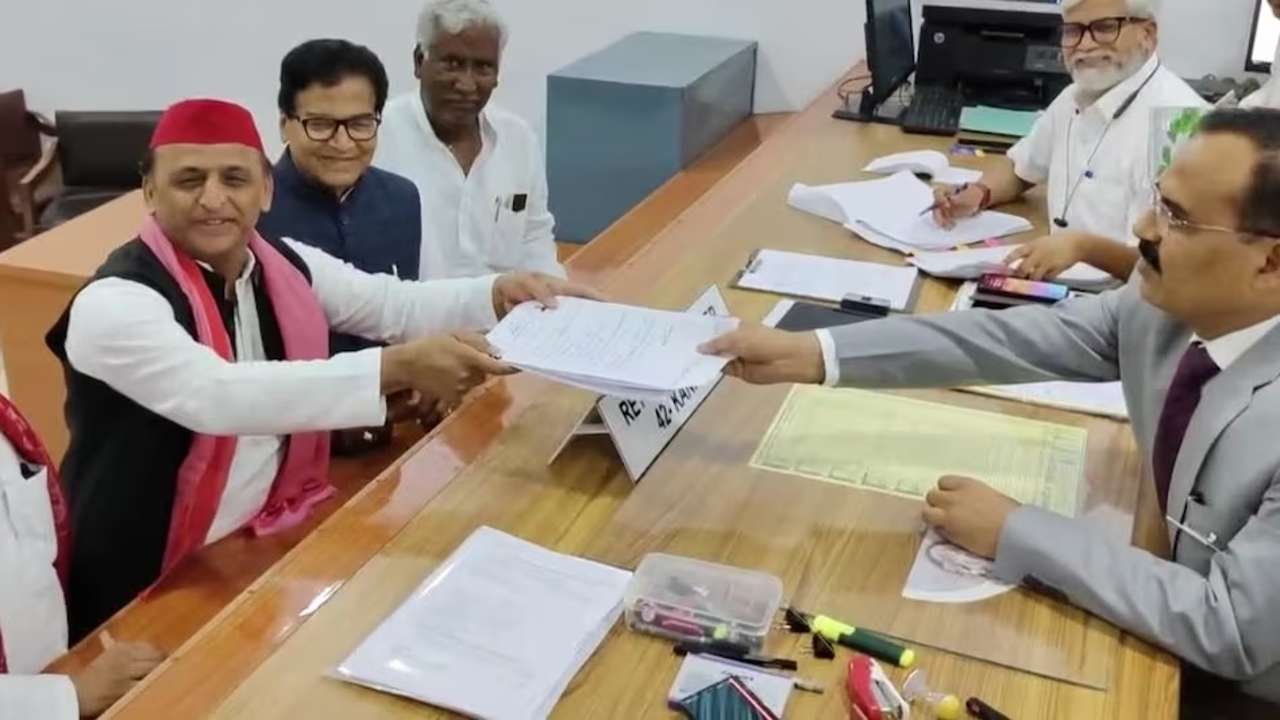
Samajwadi Party (SP) chief Akhilesh Yadav, submitted his nomination for the Kannauj Lok Sabha constituency ahead of tomorrow’s second round of voting. In front of Ram Gopal Yadav and other party leaders, the chief of the SP, who had previously contested the seat in 2000, 2004 and 2009, submitted the nomination.
Speaking with media, Ram Gopal Yadav said that SP would win the seat by a huge margin. The BJP candidate might lose his deposit in the seat, he said.
The Samajwadi Party has completely reversed its earlier plan to field former Mainpuri MP Tej Pratap Singh Yadav as their candidate, which is a significant political development.
Earlier, Akhilesh Yadav told reporters, people will find out when the nomination takes place, in reference to the speculations that he will contest for the seat. The historic victory of Kannauj is the subject of inquiry.
The former chief minister continued, the people have decided that the India bloc is coming as the future and the BJP will be history in this election.
Notably, elections for the Kannauj seat are scheduled for May 13, which would intensify the political drama that is now playing out in Uttar Pradesh. Previously regarded as the Samajwadi Party’s stronghold, the seat was lost by the party in the 2019 election when Subrat Pathak of the BJP won with a resounding victory.
The candidates competing for the following Uttar Pradesh seats will find out their destiny in the second round of voting, which is scheduled for tomorrow, Amroha, Meerut, Mathura, Baghpat, Aligarh, Ghaziabad, Gautam Buddh Nagar, and Bulandshahar.
Notably, two Bollywood celebrities running as BJP candidates in the second round are Hema Malini from Mathura and Arun Govil from Meerut. There are 91 contestants from UP competing in the second phase.
The seats in Gautam Buddha Nagar and Mathura are up for grabs, with a maximum of 15 applicants per seat. In Bulandshahr, six candidates are vying for the presidency. There are twelve contenders running in Amroha, eight in Meerut, seven in Baghpat, and fourteen in Ghaziabad and Aligarh.
1,67,77,198 votes will decide these candidates’ fates.
-
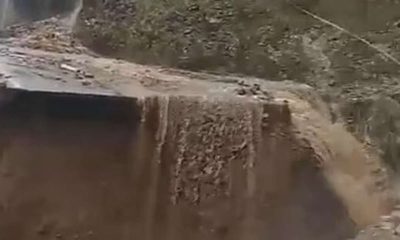
 India News8 hours ago
India News8 hours agoLandslide hits Arunachal Pradesh, highway linking Indo-China border affected
-
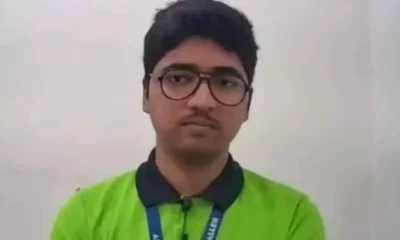
 Education6 hours ago
Education6 hours agoFarmer’s son Nilkrishna Gajare Nirmalkumar from Maharashtra scores 100 NTA score in IIT-JEE Mains 2024
-

 Entertainment7 hours ago
Entertainment7 hours agoBollywood stars Salman Khan, Alia Bhatt, Rekha, Sonakshi Sinha, Aditi Rao Hydari attend Sanjay Leela Bhansali’s Heeramandi premiere
-

 India News8 hours ago
India News8 hours agoTamannaah Bhatia summoned in illegal IPL streaming app case, to appear before cyber cell on April 29
-
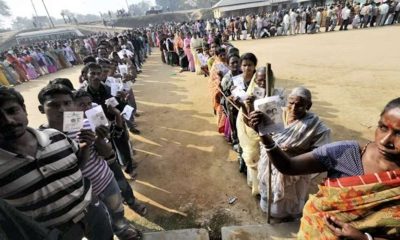
 2024 Lok Sabha Elections7 hours ago
2024 Lok Sabha Elections7 hours agoBihar: Election Commission extends voting timings for 4 Lok Sabha seats due to heatwave
-

 Cricket news8 hours ago
Cricket news8 hours agoIPL 2024: Rishabh Pant, Axar Patel score half centuries as Delhi Capitals beat Gujarat Titans by 4 runs
-

 Cricket news54 mins ago
Cricket news54 mins agoTelugu superstar Mahesh Babu meets SRH captain Pat Cummins, says it is an absolute honour
-
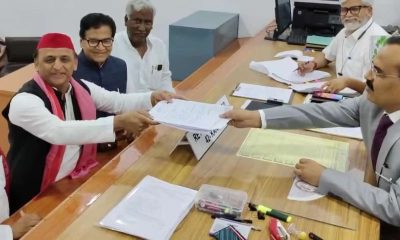
 2024 Lok Sabha Elections6 hours ago
2024 Lok Sabha Elections6 hours agoLok Sabha elections: Samajwadi Party chief Akhilesh Yadav files nomination from Kannauj

